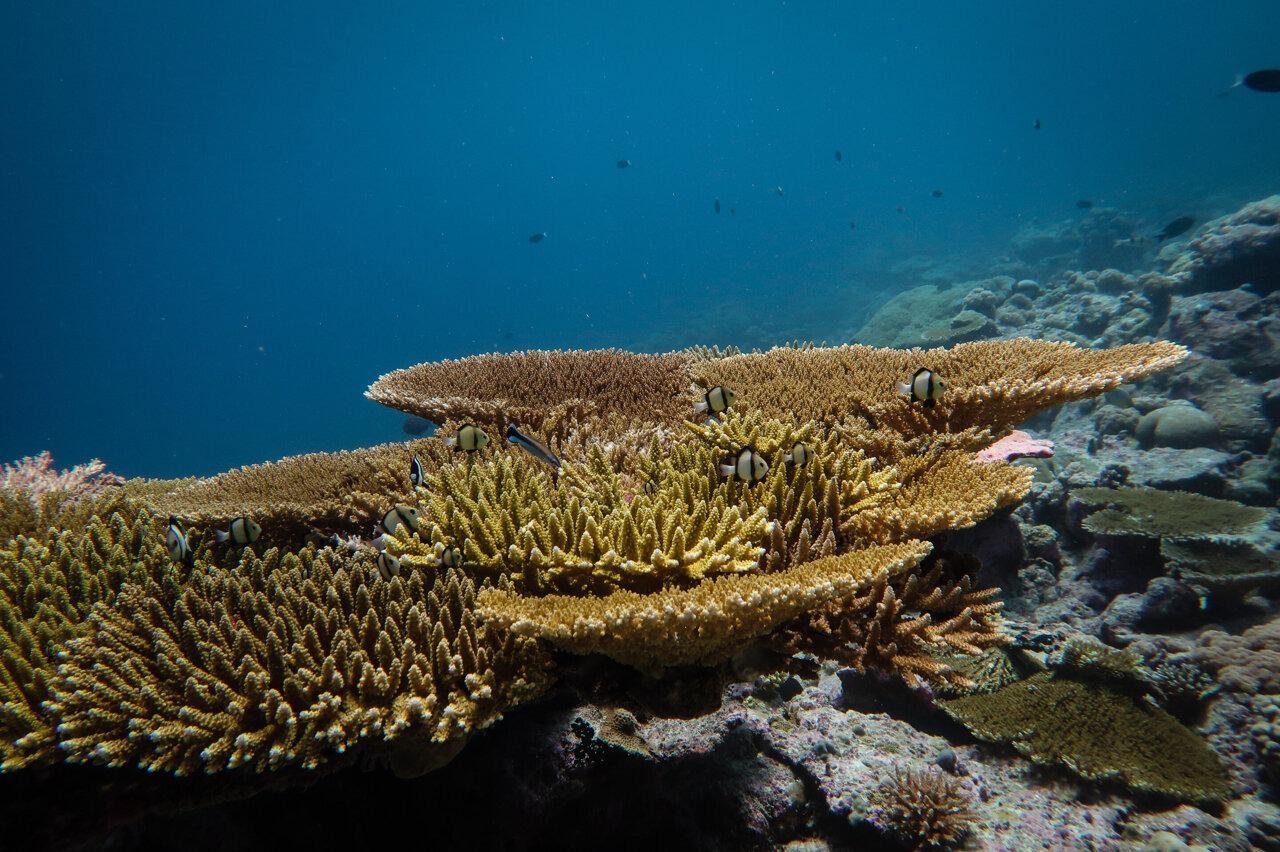A new study performed has shown that coral reefs present in remote or protected regions can rapidly recover following mass coral bleaching events.

Image Credit: Dr Ines Lange.
An investigation has been performed by the scientists from the University of Exeter on “reef carbonate budgets” — the net production or erosion of reef structure over the years.
To gain better insight into the effects of climate change on reef functions, the researchers analyzed around 12 reefs in the remote Chagos Islands in the Indian Ocean before and after the global coral bleaching event that took place in 2015/16.
In 2018, the earlier thriving reefs were “shrinking”, with coral cover and carbonate production down by over 70% and erosion processes surpassing the growth of new corals.
On returning in 2021, the scientists noticed that all reefs were on a track of recovery, even though the speed differed from place to place.
Reefs displayed a quick transition back to positive growth only six years following the bleaching event, where the main coral species returned rapidly and the basic physical reef structure had stayed intact.
Bleaching is caused due to warmer water temperatures, activating corals to eject their symbiotic algae and become white. Corals can endure this, but an extreme heatwave results in large-scale mortality.
The speed of succeeding recovery is considered to be a significant indicator of a reef’s resilience and health.
Such high rates of coral recruitment and the rapid restoration of reef functions are a very nice surprise and imply that this location is showing some resilience, thus far, to ongoing ocean warming.
Dr. Ines Lange, Study Lead Author and Postdoctoral Research Fellow, University of Exeter
Lange is a research fellow in a multi-institutional project that is financially supported by the Bertarelli Program in Marine Science.
A full recovery of reefs across the Chagos Archipelago over the next few years is likely if the region is spared from reoccurring marine heating events.
Dr. Ines Lange, Study Lead Author and Postdoctoral Research Fellow, University of Exeter
Dr. Lange continued, “The study shows that in remote and protected areas without local impacts such as fishing or pollution from land, coral reefs and the important functions they provide are able to recover relatively quickly, even after large-scale disturbances.”
“Proximity to healthy coral populations and the maintenance of a complex reef structure seems to boost recovery speed, which may help to manage reefs under the threat of increasing frequency of bleaching events predicted for the near future,” added Dr. Lange
To measure the reef carbonate budgets, the co-author of the study Professor Chris Perry, from the University of Exeter, has come up with the census-based ReefBudget.
Such carbonate budgets are significant indicators of a reef’s potential to offer habitat to marine life, safeguard shorelines from wave energy and help reef islands keep up with sea level increases in the future.
Over the past few years, Professor Perry and Dr. Lange improved the technique for the central Indian Ocean by measuring and combining local rates of parrotfish erosion and coral growth.
Journal Reference:
Lange, I. D., et al. (2022) Recovery trends of reef carbonate budgets at remote coral atolls 6 years post-bleaching. Limnology and Oceanography. doi.org/10.1002/lno.12066.